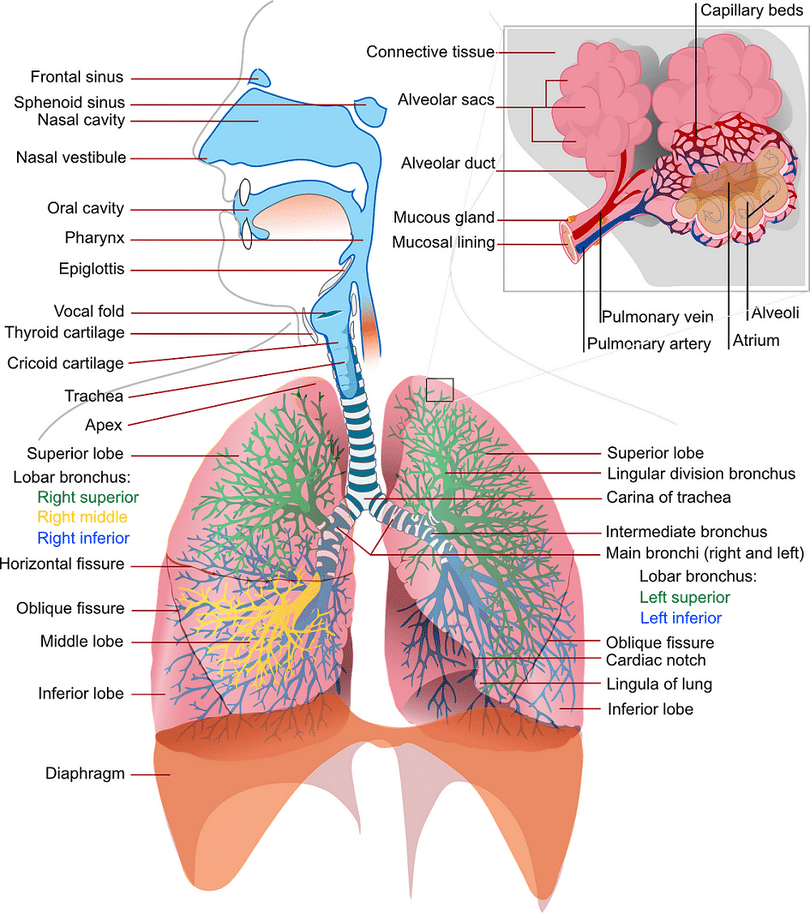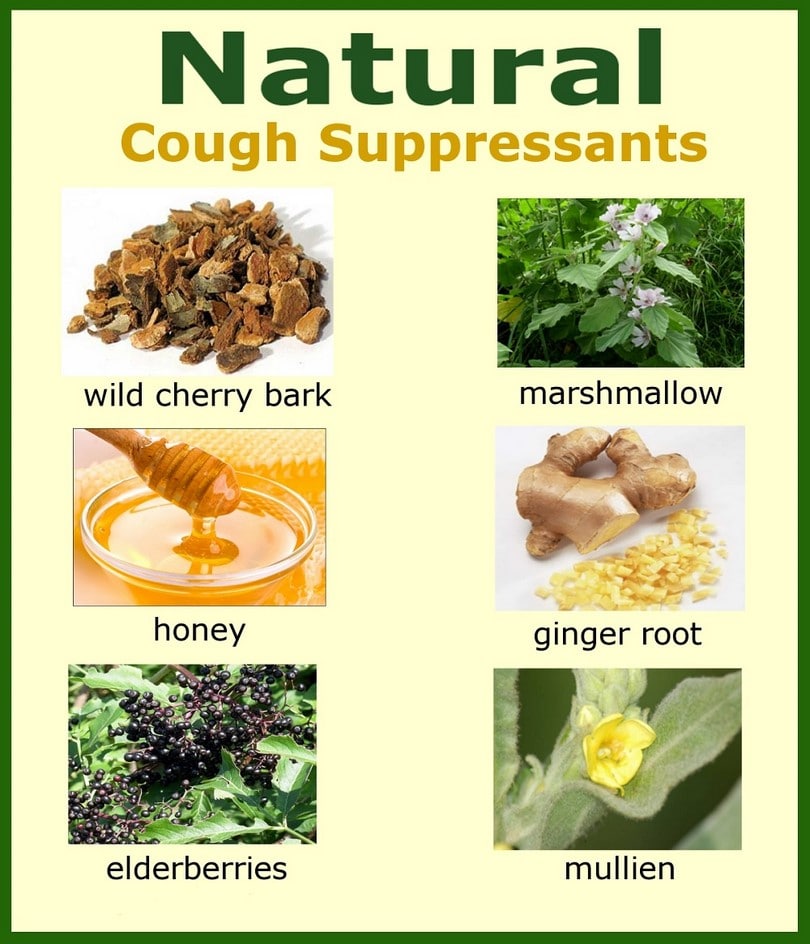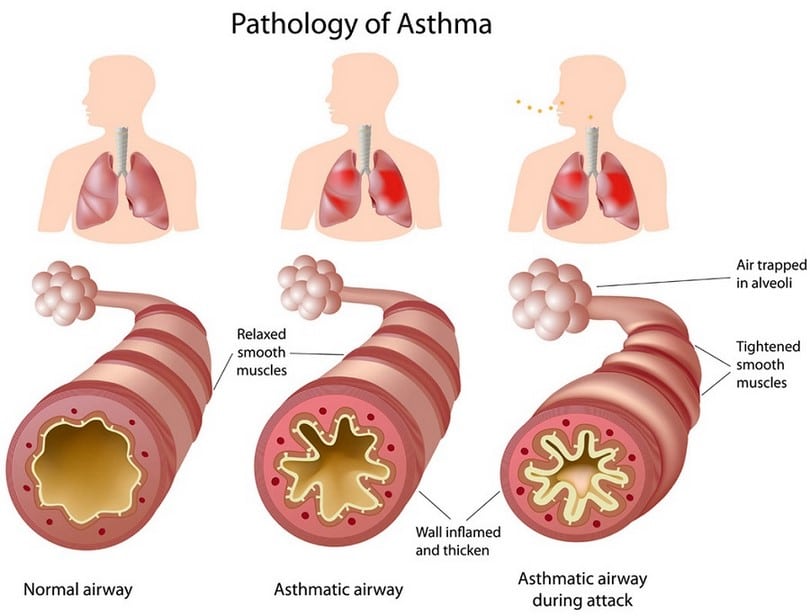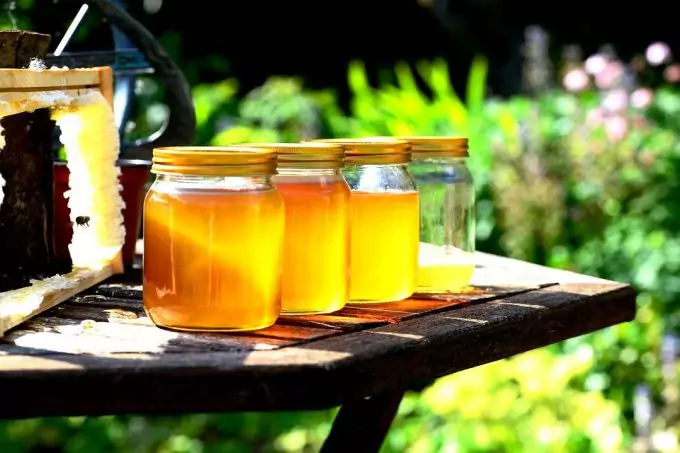Coughs are a reflex generated by the body and triggered by one’s immune system to defend the body against airway obstructions. This indicates mild to severe conditions and is identifiable by accompanying symptoms. When a dry hacking cough becomes bothersome, that’s when it’s time to seek out reliable cough remedies. Let’s face it, a nagging cough, whether chronic or acute, can make an individual quite uncomfortable. In fact, people seek out medical assistance for this problem more often than any other condition.
[the_ad_placement id=”in-text-1-type-r”]According to the Centers for Disease Control and Prevention, in 2012 there were nearly 1 billion medical visits, with over 55% of the visits to a primary physician, and the main illness reported for the visits were for the presence of a nagging cough.
Cough causes
The home remedies options a person has will have to be chosen only after considering the chief cause of the cough and the accompanying symptoms the individual is experiencing. Many coughs are caused by the presence of particles that prove irritating to the individual or due to the presence of excessive mucous. They can be productive or dry. When productive, the individual may have the presence of excessive phlegm and sputum.
Conditions can also be defined as chronic or acute. When chronic, a cough may last longer than a month. When acute, the individual may have to deal with the symptoms for up to three weeks. See the summary of basic cough types below:
| Type of cough | Symptoms and/or duration |
| Dry | No presence of phlegm or sputum. May be accompanied by chest pains, shortness of breath, and sore throat. |
| Productive | The presence of sputum and phlegm. May be accompanied by a stuffy nose, postnasal drip, and other cold/sinus symptoms. |
| Acute | Lasting up to three weeks. |
| Chronic | Lasting longer than four weeks. |
There are a number of conditions that can be identified as a potential cause. Sinus infections, influenza, the common cold, bronchitis, pneumonia and other lung infections, can all be the origin of a cough. Asthmatic conditions and sometimes gastroesophageal issues can prove to be the underlying condition as well. What’s more, Chronic Obstructive Pulmonary Disease (COPD), sinusitis, allergies, and environmental irritants like smoke or pollutants can instigate cough. For natural remedies on seasonal allergies, see our article for more information on this topic.
Potential triggering conditions
When looking for natural home remedies for cough, it’s important to keep in the back of one’s mind that when a cough lasts longer than a period of two weeks under conservative treatment, it’s time to seek out medical assistance.
Some coughs can be treated at home conservatively with relative safety, but is always good to talk to a doctor about home remedies before implementing them. It’s also important to bear in mind that if the triggering condition is particularly dangerous, like asthma, pneumonia, or the individual has symptoms suggestive of congestive heart failure of COPD, quick action to seek medical attention is advised.

Common conditions behind the cause of a cough include chronic sinusitis, postnasal drip, and runny nose from a cold. Flu-like symptoms can also produce a cough. If the cough is triggered by asthmatic conditions, the individual may suffer from a tight feeling in the chest and wheezing. Do read our piece on natural methods for healing asthma to give your more information.
When a cough is triggered by a condition like GERD, the individual may suffer from acid reflux and heartburn, which in turn, triggers the cough. Lung infections, including tuberculosis, pneumonia, and bronchitis, trigger coughing and require immediate medical attention.
If the individual experiences fluid retention/swelling the in the legs, also called edema, difficulty breathing or shortness of breath, and pain in the chest accompanying a cough, again seeing a doctor is necessary as the latter symptoms may be indicative of congestive heart failure. At any time, if the individual coughs up sputum containing blood, immediate medical attention is warranted.
Cough and nasal congestion remedies
Natural home remedies for cough when nasal congestion and postnasal drip accompany the coughing do exist. There are no cures for the common cold because the condition is caused by a variety of viruses. The average adult will deal with as many as four cold conditions annually, and children can suffer from colds up to ten times a year.
If the cough is due to a cold, some of the accompany symptoms may include headache, postnasal drip, sore throat, hoarseness, fatigue, and sneezing. If the individual has a fever and all of the latter mentioned symptoms, chances are the individual has the flu, not a cold.

According to the University of Maryland Medical Center, one should consume a lot of water when experiencing a cold/flu and cough. Doing so helps to free up mucous and keep the cough productive instead of dry. Consuming light hot liquids, particularly soup, broth, and tea, offer immediate relief from some cold symptoms. If the nasal congestion and coughing result in soreness in the throat, the use of a humidifier can help ease the individual’s discomfort. Another all-natural remedy involves the use of saline to irrigate the nasal passages.
Chicken soup, the use of probiotics, and the consumption of Vitamin C supplements are all recommended when one has a cough from a cold. Good herbals, used as directed, include Elderberry, Eucalyptus, Goldenseal, Licorice, Marshmallow, Peppermint, and Slippery Elm. Some herbals are not recommended for children, and correct dosage and/or methods of consumption vary for adults/children.
Herbal cough remedies and dosages
Before using any of the herbal remedies herein mentioned, an individual needs to check on the correct dosage and if the herb has any interactions with the individual’s existing medications. Below are some herbals for dealing with cold symptoms that trigger a cough:
Goldenseal is an ideal herbal treatment for dealing with cough because it has anti-inflammatory, antibacterial, and anti-tussive properties. The recommended dosage is 125mg up to four times daily for adults, but the herb should not be consumed longer than 7 days.
Elderberry: When using Elderberry to treat the underlying condition of a cough, adults can consume the herb in the form of a tea by brewing three to five dried flowers in hot water for up to 15 minutes. The individual can drink the concoction up to three times a day. The herb helps to loosen up congestion and make a cough more productive. The hot tea is also soothing. This herb is not recommended for pregnant women, nursing mothers, or children. It is also not recommended for anyone with hypertension or diabetes.
Marshmallow is an herbal remedy that addresses the hoarseness in one’s throat that can trigger a cough. An individual can consume Marshmallow in tincture form at a dosage of two to four droppers full, two to three times each day to treat cough and hoarseness. The herb is available as a powder and infusion as well.
Eucalyptus ointments can reduce congestion and phlegm responsible for the cough.
Licorice root remains a classic home remedy for sore throat relief, which may help diminish a cough triggered by throat irritation. Women pregnant or breastfeeding, and people with liver disease, kidney disease, or hypertension should not use the herb. This herb’s primary effect is on the immune system as well as the endocrine and digestive system.
The herb should not be taken in doses over 4 grams a day. Licorice has anti-inflammatory and antiviral properties while working as an expectorant and natural cough remedy. The individual can consume the herb as a tea one to two times daily.

Slippery elm is another herbal that serves to remedy a cough by treating the underlying condition of a sore throat. The herb, when consumed as a tea, has antitussive and demulcent properties. The individual can consume the herb two to three times a day as a one-cup decoction. Slippery Elm has positive effects on the digestive and respiratory systems.
[the_ad_placement id=”in-text-2-type-r”]Peppermint is an aromatic herbal, one good for treating colds and digestive conditions. The active ingredient in peppermint is menthol, which works as a natural decongestant. The menthol diminishes the amount of mucus the individual has and it simultaneously works as an expectorant. This herb can help with dry coughs and sore throats. The herb is ideal for children. Pepper oil should never be consumed orally. Peppermint also helps rid the body of toxins through increased perspiration. The individual can consume as peppermint a tea, or use the oil aromatically.
Herbals for asthma
Dealing with the asthmatic-triggered cough is all about attack prevention. To that end, there are several herbals an individual can use to reduce the chances of having an attack.
Boswellia, also called Salai guggal, is an Ayurvedic treatment for preventing asthma attacks. What’s more, the herb has been found to improve the functioning of a sufferer’s lungs. If the individual is consuming anti-inflammatory medications, the individual should discuss the use of Bosewellia with a doctor. The herb can be consumed by an adult up to three times daily at a dose of 3 grams.

Coleus Forskohlli is another Ayurvedic treatment asthmatic condition. The herb is not ideal for pregnant women, nursing mothers, children, diabetics, or those who suffer from thyroid conditions. Coleus offers a relaxing effect on bronchioles in the lungs and can be consumed as an extract at an adult dosage of 50mg three times a day. The extract should contain 18% forskolin.
Tylophora is a supplement. The dosage for an adult is no more than 250mg one to three times daily. Tylophora diminishes asthmatic cough triggering symptoms. The herbal is not ideal for people with congestive heart failure, hypertension, diabetes, or pregnant and nursing women.
Pycnogenol is a supplement derived from pine bark. The adult dose is based on body weight at a rate of 1mg per pound. Researchers found that Pycnogenol has the ability to improve lung functions. The treatment is not ideal for diabetics or those who have hypertension.
Coughing and GERD
GERD, otherwise known as Gastroesophageal Reflux Disease, results in the contents within the small intestines and stomach moving its way back into the individual’s esophagus. When this happens, the acid reflux can cause heartburn and coughing.
Herbal treatments for GERD that will help in remedying or preventing a cough naturally include the use of DGL-Licorice, Peppermint, Cranberry, and Mastic. The latter mentioned herbals should be consumed at the following doses with the noted considerations:
- Peppermint, while working as one of many home remedies for cough associated with a cold, also works in people suffering from GERD. One enteric coated tablet of peppermint two to three times each day can alleviate stomach issues that may result in acid reflux leading to cough.
- Mastic, otherwise called Pistacia Lentiscus inhibits H. pylori and soothes ulcer conditions. A dose from an extract for adults is between 1,000 and 2,000 mg per day, but only in divided doses.
- Cranberry, or Vaccinium macrocarphon, has the ability to inhibit the H. pylori bacteria, which happens to cause stomach irritation. A dose of 400 mg two times daily can provide upset stomach relief and diminish cough.
- DGL Licorice, otherwise called Glycyrrhiza glabra, Liquiritia officinalis, Lacrisse, and Reglisse, is used, not just for GERD, but for dealing with aute and chronic bronchial conditions. Adults can consume the extract three times a day at a dose between 250 and 500mg.
Coughing and lung infections
While mentioned earlier, an individual suffering from a lung infection or any condition where there is danger involved, seeking out medical help is essential. Complementary medicine should not replace the act of seeking out traditional medical help. With that expressed, there are some complementary methods that can serve as good home remedies.
N-acetylecysteine is a supplement that serves as a natural antioxidant, and can diminish issues and coughs related to COPD and bronchitis. The supplement is an amino acid that diminishes oxidative stress within the user’s lungs. The supplement can be consumed at a dose of 400 to 1,200mg daily.

Image credit: neocellcollagenstore.com
Echinacea: This herb has long been used as a remedy for cold symptom. The adult dosage is 300mg three times each day. The use of the herb before cold onset is believed to help in preventing the condition from occurring and may even reduce the length of a cold by 1.5 days. The herb is an immune stimulate available as a tea, capsule, tincture, and tablet. If consuming a decoction, the dose for adults is one cup three to four times a day. The herb is only ideal for short-term use.
Allium sativum, also called Garlic, is another remedy for coughs, particularly those related to respiratory infections. Those who are on blood thinners or anticoagulants should not use garlic as a supplement. The dose is 3 to 6 perles each day.
Additional conservative cough remedies
As per information on Healthline, a study conducted in 2007 indicates the use of honey can prove an ideal treatment for natural cough relief, and in some regards, is as effective as or more effective than modern over the counter medications, such as cough suppressant products like dextromethorphan. Honey can be consumed by adults by the spoonful or added to an herbal tea for the treatment of a cough. Even better, honey can soothe a sore throat as well, thereby minimizing cough in relation to throat irritation. Honey should not be used to treat children. Check out our article on the many benefits of honey to keep you knowledgeable on the topic of natural healing.

Lemon added to some herbal tea can help in reducing congestion, which can, in turn, reduce coughing. An individual can add a touch of lemon to Thyme tea, which is ideal for dealing with respiratory conditions. Thyme extract has been used successfully to treat bronchial conditions, and just one or two teaspoonfuls in a steeped in cup of hot water for 10 minutes makes for a fast at home all natural remedy for cough.
[the_ad_placement id=”in-text-3-type-r”]Bromelain is an ingredient naturally found in pineapple. Bromelain is a natural enzyme that acts as a cough suppressant. At the same time, Bromelain can loosen up congestion in the throat and chest. What’s more, the enzyme has positive effects on inflammation and swelling. While not recommended for children, Bromelain is available in the form of supplements for adults.
When coughing is an emergency
There are some conditions where home remedies for cough are impractical, and perhaps even unsafe. When certain signs and symptoms accompany a cough, it will prove a good idea to forgo conservative treatment at home, and to pursue the help of a medical professional. Some examples where coughing is an emergency requiring immediate care include:
- Swelling of the Abdomen, which can be indicative of conditions like congestive heart failure, lung carcinoma, Endodermal sinus tumors, Cystic Fibrosis, and Constrictive tuberculosis pericarditis.
- Sudden swelling of legs and coughing may be indicative of congestive heart failure
- Shortness of breath requires immediate attention in every instance.
- When a Chronic cough has been around for longer than two weeks, it is a good idea to see a doctor in order to assess one’s health and identify the underlying condition.
- Coughing in children younger than three months of age needs immediate medical treatment because young children have weak or underdeveloped immune systems.
- Blood in the sputum one coughs up which can be indicative of more severe health conditions
- The onset of a fever, which may indicate the onset of influenza
- The presence of stridor, which is a loud high-pitched sound that occurs when the individual inhales
- Foul smelling, thick green phlegm, which is indicative of a lung infection
- Sudden or unexplained weight loss
- Abrupt onset of violent coughing, which may indicate acute or chronic bronchitis, pneumonia, tuberculosis, and other severe medical conditions.
In closing
Treating a cough conservatively with home remedies for cough is possible, but the individual must never replace traditional medical treatment for the use of natural cough remedies. Instead, medical treatment and complementary medicine can be combined to supply the individual with the best treatment and potential for health improvement.
When consuming complementary remedies, common sense is always important. One should research the complementary medicine carefully to determine the correct dosage and if there are potential interactions. Once research is conducted, the next step is to speak with a healthcare professional for advice on the proper use of natural cough remedies.






I know of several singers who swear by the effectiveness of ginger root tea. I’ve tried and it can be a little intense but nothing that a drop of honey can’t fix.
Yap, ginger root tea is amazing for your health but it does have a spicy taste.
Oh, I love mint tea with honey! It always helps me with my sore throats and stops my coughs especially when the air outside is cold and dry. However, some people add whiskey in their tea. I haven’t tried it yet, but I hope it does not burn they dry throats, though.
Whiskey in tea? I haven’t tried that myself. I do put in liquor in my coffee from time to time though. Mint teas are always good and it does soothe the throat. Anything with a menthol flavor and taste can do that.
For cough, my doctor told me and i cant forget it, you guys just have to gargle with lukewarm salt water, as this prevents sedcondary bacteria infections, and washes off mucus, and soothes the soreness. Just hydrate yourself and that can do wonders to your body.